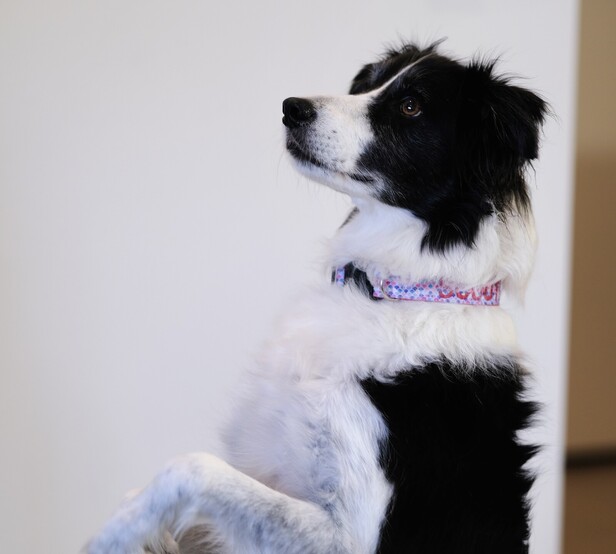Small Animal Physiotherapy
Physiotherapy for small animals may be for treatment of a specific condition, or for routine maintenance in performance and working animals.
The physiotherapy assessment begins with obtaining a detailed history from the owner, followed by gait assessment, a ‘hands-on’ assessment of the patient, and specific tests such as range of motion, joint and neurological tests.
After the consultation, Owners will receive an individualised home exercise programme for their animal.
Small Animal Physiotherapy Treatments
Treatments Offered
Joint and soft tissue mobilisation
Myofascial Release and Trigger Point Therapy
Stretching and Range of Motion Exercises
Therapeutic Taping
Acupuncture
Laser, Ultrasound, Transcutaneous Nerve Stimulation, hot and cold therapies
Exercise prescription
Canine Fitness Classes
Conditions Treated
Muscle strain, tendon and ligament injuries
Joint Diseases – osteoarthritis, hip/elbow dysplasia
Rehabilitation following surgery – hip/elbow dysplasia, cruciate disease, spinal surgery
Rehabilitation following fractures
Spinal conditions – intervertebral disc disease, lumbosacral stenosis
Neurological conditions
Sporting injuries
Orthopaedic and Congenital Conditions
Congenital conditions such as hip and elbow dysplasia, and congenital spinal deformities are not uncommon in dogs.
These conditions often cause pain, loss of function, a reduced quality of life, and can predispose to the development of osteoarthritis.
Physiotherapy can assist with:
Reducing pain
Improving joint range of motion
Preventing muscle wastage
Correcting abnormal movement patterns
Prescription of an individualised programme to help your dog achieve optimal movement and function
Following Injury or Surgery
Physiotherapy can assist in the rehabilitation of small animals following injury such as muscle and ligament strains, joint injuries, fractures, and complex wounds. Early intervention with physiotherapy enhances recovery, reduces scar tissue formation, restores normal movement patterns, and can prevent unwanted complications.
Physiotherapy following orthopaedic and neurological surgery is now common place in veterinary specialist centres. Katrinka works closely with veterinarians to achieve optimal outcomes for patients and consults out of the Queensland Veterinary Specialist Centres at North Lakes and Stafford, Brisbane.
Neurological Conditions
Physiotherapy can assist in the rehabilitation of small animals following neurological injury such as Intervertebral disc disease (IVDD), fibrocartilaginous embolism (FCE), polyradiculoneuritis, and many other neurological conditions. Physiotherapy interventions can reduce pain, restore muscle function, re-educate gait, prevent compensatory movement patterns, and prevent development of secondary complications.
The Older Patient
Arthritis is not uncommon in small animals, and can be the result of injury or congenital conditions that an animal has suffered from an early age or sporting career. Physiotherapy can assist with reducing pain, improving range of motion, restoring functional movement, enabling your animal to be more active and have improved quality of life.
Working & Sporting Dogs
Working dogs and dogs that participate in canine sports such as Agility are elite athletes. The demands of their sport and working careers often place these dogs at risk of injury, muscle imbalances, and even orthopaedic conditions. Physiotherapy can assist with prevention of potential injury through pre-screening for potential problems that may result in pain, loss of performance, or lead to injury.
Appointment Details
In-person appointments can be booked through Queensland Veterinary Specialists or Northside Vet Care.
Online consultations can be booked through the contact form in the button below.
Appointment Pricing
Initial Physiotherapy Consultation (60 - 90mins depending on case complexity) $169
Revisit Physiotherapy Consultation (45mins) $158
Booking an Online Consultation
For various reasons, you may not be able to attend a consultation in person. Remote locations, disabilities, illness, or dogs that are difficult to travel, may impact your ability to access specialist services. Online consultations allow for flexibility and can accommodate people’s individual needs.
Optima Animal Physio offers online consults for patients from the specialist centres we service and our private patients:
Clients of QVS and NVC:
Please ring reception at your practice.
Private Consults:
Please contact Katrinka via online enquiry, email, or mobile:
0422 764 680
For online consultations, we use Zoom or Skype platforms.







